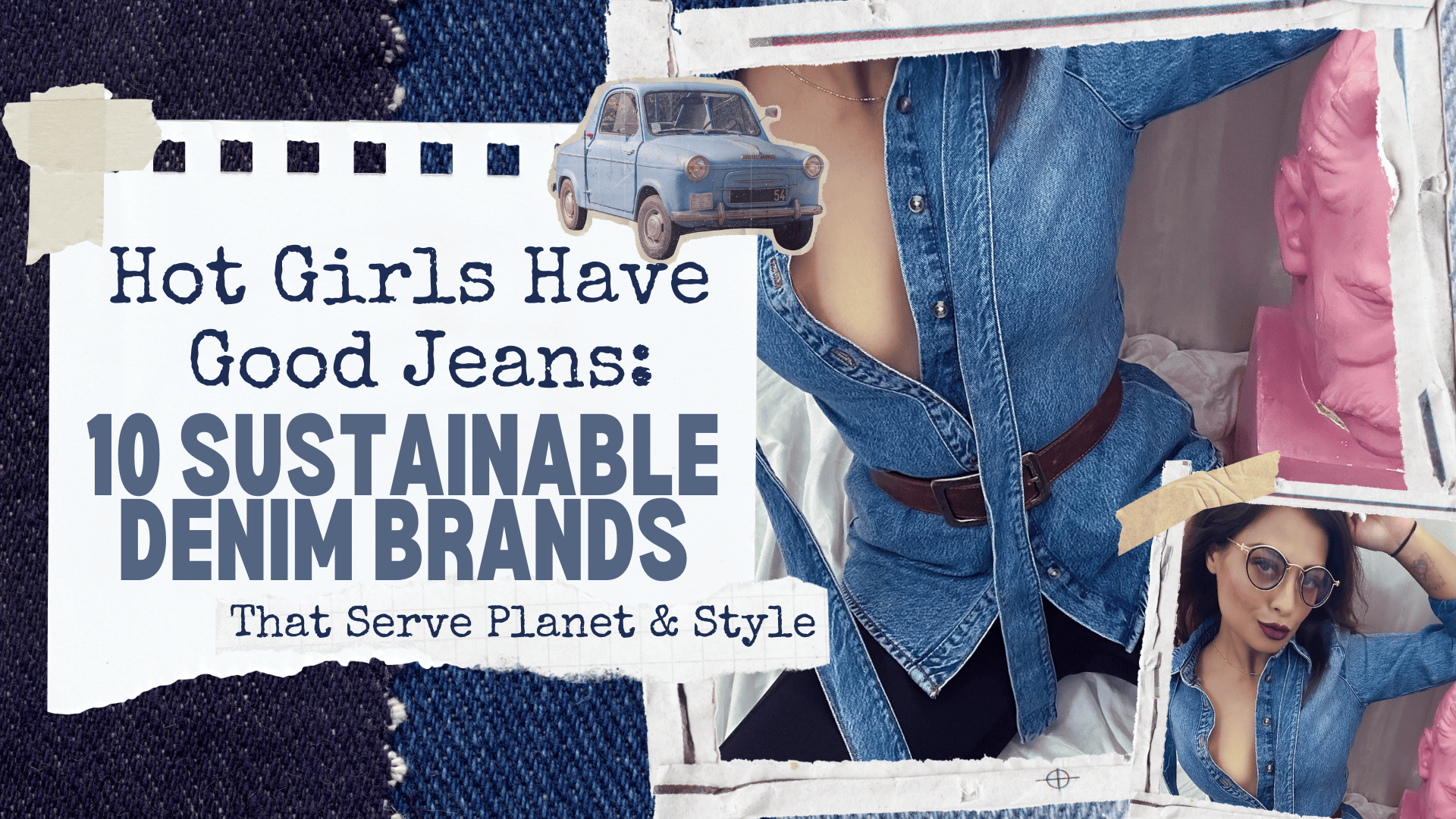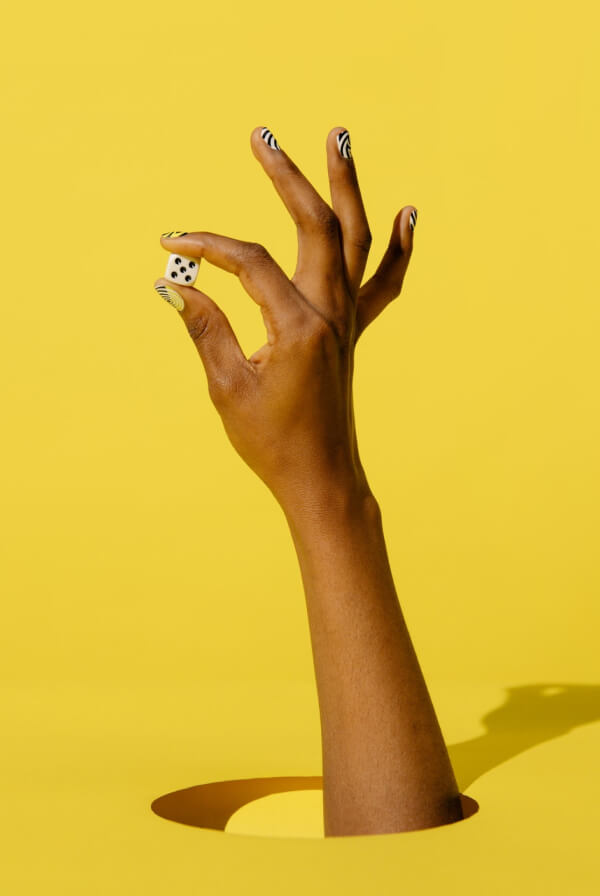Let’s be real: I love denim. And I'm sure you do too.
There’s something about that perfect pair of jeans that just hits. The kind that hugs in the right places, makes your butt look like a peach emoji, and pairs effortlessly with a cute top. And lately, denim’s been having a moment. From vintage Levi’s making a quiet comeback to TikTok’s obsession with the “perfect wash,” jeans are the unshakeable staple of every era, every aesthetic.
But somewhere between my vintage Levi’s obsession and a very curated Pinterest board of baggy mid-rise silhouettes… Sydney Sweeney dropped that ad. You know, that “I’ve got good jeans” moment. And suddenly, my algorithm was American Eagle - Sydney Sweeney - denim-drenched — part satire, part slay, part existential dread.
It actually made me wonder (for the first time, oops): what actually goes into crafting a pair of jeans?
Cue my rabbit hole.
What started as a casual scroll turned into a deep dive into the denim-industrial complex — from toxic dyeing and excessive water use to some serious climate wins happening in unexpected places. And of course, I had to share my findings with you.
Because being a climate baddie doesn’t mean ditching the drip — it means knowing your drip and its origin story AND finding better sustainable alternatives.
So whether you’re hunting for your next everyday pair, investing in slow fashion, or just here to upgrade your closet, here’s your definitive guide to sustainable denim: the brands, the tech, and the future of jeans that slay and stay.
🧵 What Are Jeans Made Of, Really?
Let’s strip it down (pun very intended). Denim might seem like your average closet staple, but it’s literally woven with history, agriculture, and industrial chemistry.
At its core, denim is made from cotton — one of the most resource-intensive crops in the world. Conventional cotton farming often involves heavy pesticide use, synthetic fertilizers, and — let’s talk about it — a lot of water. We’re talking 1,800 gallons (that’s over 6,800 liters) of water for just one pair of jeans. That’s equivalent to 50+ long showers or a week’s worth of hydration in a drought-stricken region.
But denim isn’t just about cotton. Your favorite pair may also include:
- Elastane or Lycra for stretch (hello, skinny jeans era)
- Polyester for durability (but also microplastic shedding 👀)
- Dyes and finishes like synthetic indigo, acid washes, bleach baths, and resin coatings for that pre-worn look
So, even though it might look simple — one piece of clothing can carry a hefty environmental footprint from field to fitting room.
🧪 Behind the Seams: How Jeans Are Made (and Why That Matters)
Here’s the denim tea - making a single pair of jeans isn’t just a one-and-done affair. It’s an entire process that spans continents:
- Cotton Cultivation
Usually in water-scarce regions. Cotton is grown, often with chemical pesticides and fertilizers, before it’s harvested, cleaned, and shipped off.
- Spinning & Weaving
The cotton is spun into yarn, then woven into that iconic twill fabric — sometimes mixed with synthetic fibres for stretch.
- Dyeing & Finishing
This is where things get juicy (and messy). Indigo dye baths, chemical fixers, acid rinses, sandblasting, enzyme washes — all to achieve that lived-in vibe or perfect fade. This is also the stage responsible for a huge portion of fashion’s water pollution.
- Cutting, Stitching, Washing
The garment is assembled, distressed (if that’s the look), and often washed multiple times, sometimes with pumice stones, bleach, or ozone. This is where microplastics, heavy metals, and dye runoff enter rivers in production-heavy countries.
- Shipping + Retail
Finally, your jeans are packed, shipped globally, and displayed with a vibe-y marketing campaign that probably doesn’t tell you any of the above.
💧 What Then Does Sustainable Denim Actually Mean?
Glad you asked. Because no, it’s not just “organic cotton” or "sustainable" as a cute buzzword slapped on a tag.
In the denim world, real sustainability means interrogating every step of the process — from seed to stitch to store.
Here’s how I’m evaluating the brands that made this list:
🌿 1. Materials Matter
We’re talking:
- Organic cotton (grown without harmful pesticides or GMOs)
- Recycled cotton (less water, less land, less impact)
- TENCEL™ and hemp (lower impact alternatives with beautiful drape and breathability)
🌊 2. Water Wisdom
Conventional denim uses a LOT of water. Brands that:
- Reuse or recycle up to 95% of water
- Use ozone or laser tech for finishing
- Treat wastewater before releasing it back into the environment
...are on my yes list.
🧪 3. Chemical Consciousness
Look for certifications like:
- OEKO-TEX® (free from harmful chemicals)
- GOTS (organic textile certification)
- Bluesign® (cleaner inputs and processes)
No one wants endocrine disruptors with their distressed hems, babe.
🪡 4. Ethical Production
Who made your clothes matters. We stan brands that:
- Pay fair wages
- Provide safe working conditions
- Empower local communities (Outland Denim, you legend)
♻️ 5. Circularity and Innovation
- Take-back schemes, repair programs, rental models, or jeans made from other jeans? Count me in.
- Bonus points for brands using 3D weaving, body-scanning tech, or building on-demand manufacturing.
Because sustainability isn’t just about less harm. It’s about bold innovation, bolder imagination — and creating clothes that are just as conscious as they are chic.
Here are 10 Sustainable Denim Brands That Pass the Baddie Vibe Check
1. MUD Jeans (Netherlands)
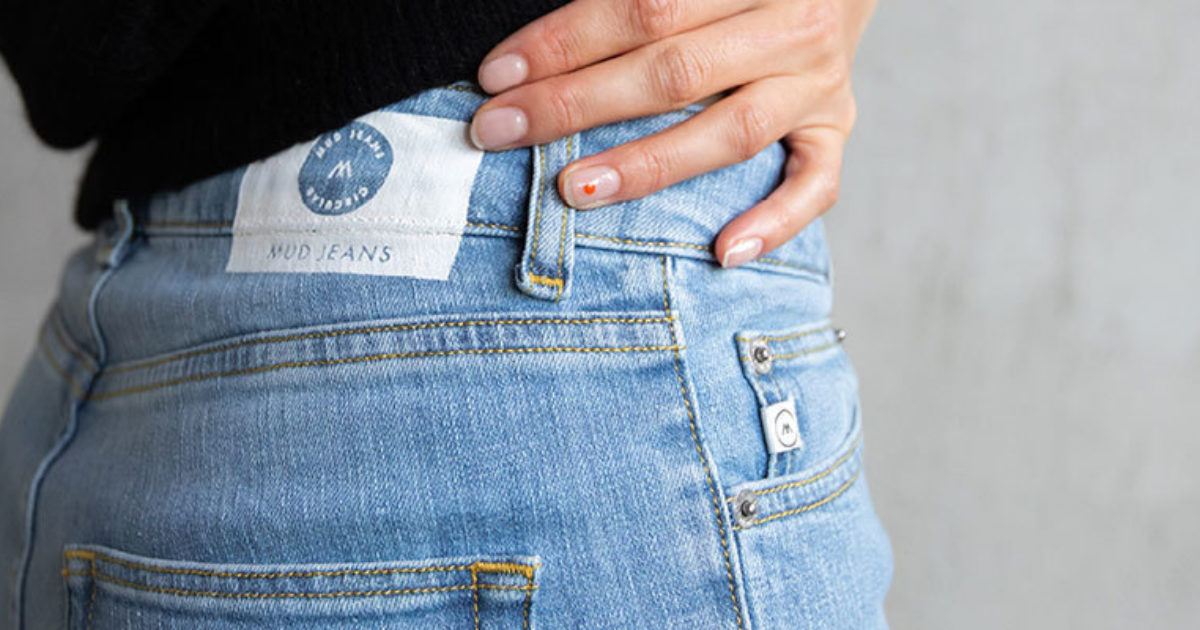
Sustainability Superpowers: Lease-a-Jeans program, 40% recycled denim, 95% water reused.
Why We Stan: Circularity queen. Also B Corp certified.
Where to Buy: mudjeans.eu – delivers internationally.
Chic Level: Minimalist Parisian with a conscience.
2. Outland Denim (Australia)
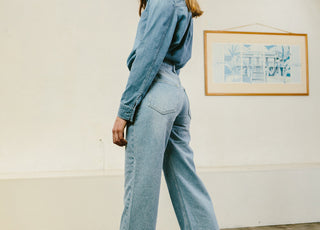
Sustainability Superpowers: Ethically produced by formerly trafficked women in Cambodia, organic cotton, clean water processes.
Why We Stan: Meghan Markle wore them. Enough said.
Where to Buy: outlanddenim.com
Chic Level: Classic with heart — perfect capsule wardrobe energy.
3. Boyish Jeans (USA)
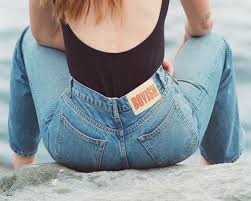
Sustainability Superpowers: TENCEL™ fabrics, recycled hardware, climate-neutral certified, cruelty-free.
Why We Stan: Transparent AF, stylish AF. Think LA baddie goes green.
Where to Buy: boyish.com or Shopbop
Chic Level: Model off-duty meets indie bookstore owner.
4. Neuw Denim (Australia/Sweden)

Sustainability Superpowers: Repair shops, recycled cotton, water-saving dye processes.
Why We Stan: Founded by musicians, inspired by vintage Levi’s.
Where to Buy: Available at multi-brand stores like Zalora and ASOS
Chic Level: Rock chick with a master's in climate justice.
5. ÉTICA (USA)

Sustainability Superpowers: Certified OEKO-TEX®, natural dyes, solar-powered facilities.
Why We Stan: Elevated basics + editorial silhouettes.
Where to Buy: Revolve, Anthropologie, eticadenim.com
Chic Level: Modern It-Girl in climate tech.
6. ASKET (Sweden)
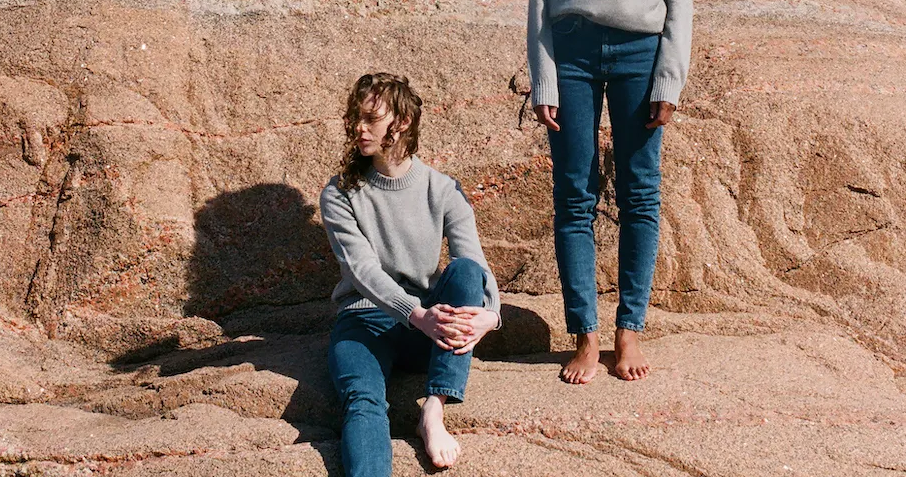
Sustainability Superpowers: Full traceability, no seasonal collections, zero plastic packaging.
Why We Stan: Timeless design. The anti-trend trend.
Where to Buy: asket.com
Chic Level: Scandinavian cool girl who composts.
7. Unspun (USA/HK)
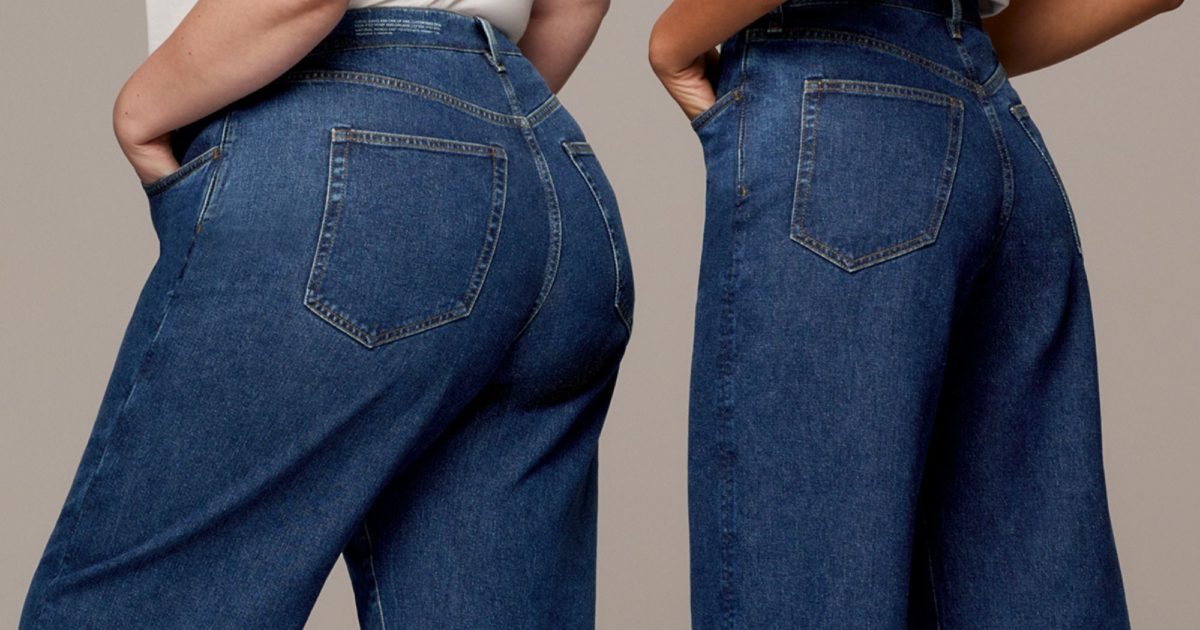
Sustainability Superpowers: Custom-fit jeans made on demand = zero inventory waste.
Why We Stan: You scan your body via app, and voilà — jeans made for your booty.
Where to Buy: unspun.io
Chic Level: Futuristic fit goddess.
8. Kowtow (New Zealand)

Sustainability Superpowers: GOTS-certified cotton, fair trade supply chain, plastic-free.
Why We Stan: Sculptural silhouettes and serious eco receipts.
Where to Buy: kowtowclothing.com
Chic Level: Gallery curator meets woke activist.
9. Triarchy (Canada)

Sustainability Superpowers: Natural dyes, recycled water systems, plastic-free packaging.
Why We Stan: Worn by Bella Hadid and Priyanka Chopra.
Where to Buy: triarchy.com
Chic Level: Editorial denim for the eco runway.
10. Kuyichi (Netherlands)
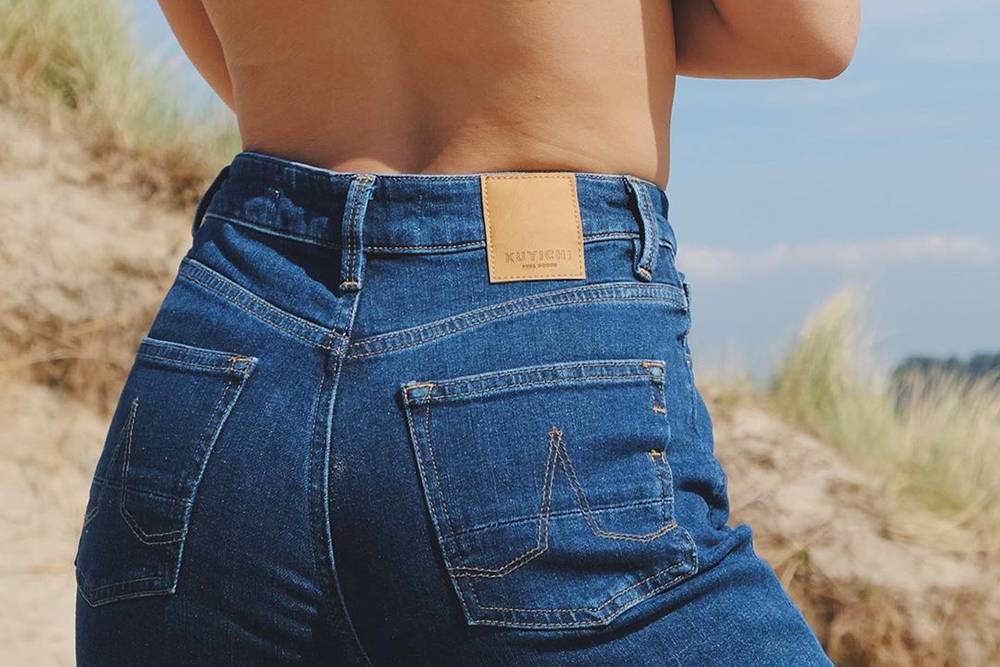
Sustainability Superpowers: Pioneers of organic cotton in denim, with circular blends, ethical manufacturing partners, and low-impact dyeing processes.
Why We Stan: Founded by Dutch environmentalists, Kuyichi walks the talk. They’ve been setting the standard for sustainable denim since the early 2000s.
Where to Buy: kuyichi.com (ships internationally)
Chic Level: Earth-toned cool with that effortless Amsterdam aesthetic.
🔄 So what can you actually do as a denim-loving baddie?
- Buy less, choose well. Go for quality that lasts, not trend cycles that fade faster than TikTok trends.
- Thrift it up. Vintage denim is sustainable by default — and often fits better anyway.
- Support brands doing the work. Your dollars = votes for a better system.
- Wash cold, air dry, and repair. Your jeans (and the planet) will thank you.
- Get curious. Ask questions, read labels, follow climate creators (hi 👋), and keep sharing what you learn.
✨ The Future of Denim Is Circular, Sexy, and Smart
So, where does this leave us — the denim-loving, Pinterest-board curating, climate-conscious baddies?
With options. Real, stylish, planet-positive options.
We don’t need to give up our love for fashion. We just need to make it fashion that gives a damn. Whether it’s supporting brands like MUD Jeans and Unspun, thrifting that dream vintage fit, or simply wearing what we already own — we get to make choices that align with our values without sacrificing our style.
And honestly? That’s the kind of slay I want to live in.
🫶 If this blog gave you life, share it. If you’re shopping denim, bookmark it. If you know a baddie who needs it, send it their way.
And if you want more hot takes where sustainability meets style — come hang out with me on Instagram @swishbishmishh or join the newsletter over at michelleloke.me.
👖💙 Your climate baddie-in-denim,
Mish

